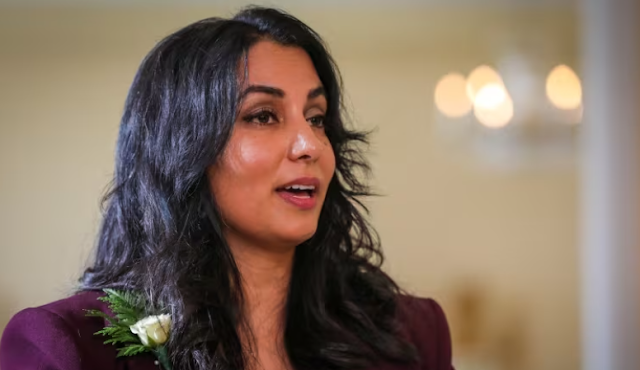The Liberal government tabled its Online Harms Act, Bill C-63, on Feb. 26, and lawyers and analysts have since been fervently reviewing and commenting on it.
The bill would have broad impacts on how online content, and speech in general, is handled in Canada. It has received praise, such as for its strong protections against child exploitation. But many have found its hate speech provisions especially alarming.
“The balance between protecting vulnerable people on the internet and egregiously infringing on free speech and expression is a delicate one,” said columnist Cory Morgan.
Some key points:
It targets seven harms: sexually victimizing children, bullying, inducing child to harm themselves, extremism/terrorism, inciting violence, fomenting hatred, and intimate content without consent including deep fakes.
While some are fairly objective, the concern is how the more subjective harms—such as “fomenting hatred” or “inciting violence”—are judged.
It seeks to amend the Criminal Code to:
- Increase penalties for hate crimes. For example, “advocating for genocide” could come with a lifetime sentence. “That means words alone could lead to life imprisonment,” said the Canadian Constitution Foundation in a Feb. 27 press release.
- Add the provision regarding “fear” that someone will commit a “hate propaganda offence or hate crime.”
- “Far more draconian than being arrested for something you say, is being imprisoned for something someone else is afraid you’ll say,” lawyer Marty Moore told The Epoch Times.
- Create a standalone offence for crimes “motivated by hatred.” Currently, in a murder or assault case for example, “hate motivation” is only an aggravating factor considered by a judge during sentencing. Now, it would be a standalone offence police could charge from the outset, and it’s “liable to imprisonment for life.”
It seeks to amend the Canadian Human Rights Act to reinstate a “hate speech” provision that was removed about a decade ago because it caused an uproar over impacts on free speech.
It will allow a government-appointed human rights tribunal to rule on some cases of hate speech (it creates a new class of hate speech below the criminal threshold judged by the courts).
The tribunal could fine people up to $50,000 and require payment to the complainant up to $20,000. The complainant does not have to be identified in all cases—so the accused may never know who has filed the complaint.
“Findings would be based on a mere ‘balance of probabilities’ standard rather than the criminal standard of proof beyond a reasonable doubt. The subjectivity of defining ‘hate speech’ will lead to punishments for protected speech. The mere threat of human rights complaints will chill large amounts of protected speech,” CCF said.
“It’s pretty cheap to lay a complaint. It doesn’t cost you anything. And if it doesn’t even cost you your identity, you can just go ahead and do that to all of your political opponents,” Mr. Moore said.
It creates a Digital Safety Commission made up of three to five commissioners appointed by the government (parliamentarians would vote on who heads it). It would be largely responsible for enforcing the law, and many have said it would have far too much power.
It could send inspectors into a person’s workplace to look at documents without a warrant (entering someone’s home would still require a warrant). It could make online content inaccessible, hold hearings (sometimes out of public view), and more.
“Despite those powers, the Commission is not subject to any legal or technical rules of evidence,” said University of Ottawa law professor Michael Geist, the Canada Research Chair in Internet and E-commerce Law, in a post on his website.
“We are talking about some of the most draconian powers given to an agency that doesn’t exist and has no track record of integrity,” Mr. Moore says.
“One troubling aspect of Bill C-63 is the vast authority bestowed upon a newly established body, comprising government appointees, to interpret the law, make up new rules, enforce them, and then serve as judge, jury, and executioner,” said Canadian Civil Liberties Association director and general counsel Noa Mendelsohn Aviv.
It also creates the position of a digital safety ombudsperson to act as a guide and advocate for internet users, and a digital safety office to support the commission and the ombudsperson.
It places requirements on social media companies (such as Facebook) to flag content that they believe “foments hatred” and deal with content they have “reasonable grounds to believe … [poses] a risk of significant psychological or physical harm.”
Failure to abide by the requirements could cost the platforms 6 percent of their gross global revenue or $10 million, whichever is greater.
“This appears aimed at encouraging social media companies to censor speech that the government cannot outlaw,” CCF said.















